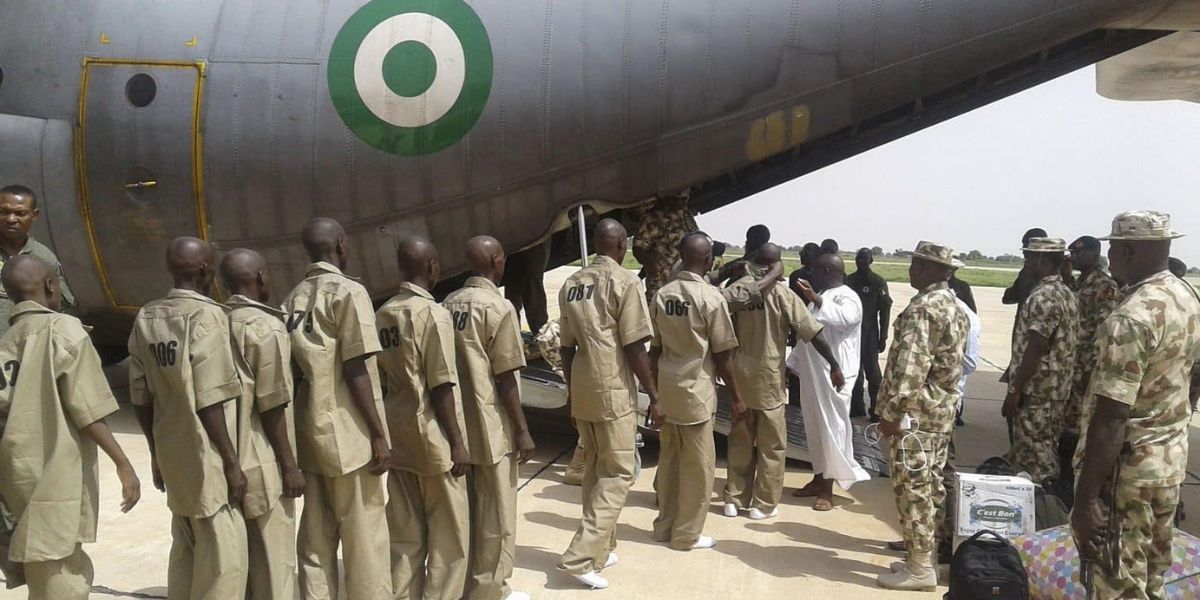The Nigerian government has reportedly spent approximately ₦1.4 billion over the past 18 months on rehabilitating repentant terrorists and establishing centers for terrorism trials, Eyes of Lagos has gathered. This investment follows the enactment of the Terrorism (Prevention and Prohibition) Bill, signed into law by former President Muhammadu Buhari on May 12, 2022, which led to the creation of the National Counter-Terrorism Centre (NCTC).
By December 2022, the government announced plans to set up two specialized centers for disarmament, deradicalization, rehabilitation, and reintegration of former Boko Haram members and other terrorists. Rear Admiral Yem Musa (retd.), Coordinator of the NCTC, recently briefed the House of Representatives Committee on National Security and Intelligence, revealing that ₦2.4 billion of the ₦3.8 billion earmarked for the centre’s 2023 capital projects would support these facilities.
Investigations through GovSpend, a platform monitoring federal expenditure, show that between December 2022 and May 2024, the Ministry of Justice allocated ₦1.4 billion for constructing rehabilitation centres for repentant terrorists and upgrading facilities for terrorism-related trials.
Key Projects Under Operation Safe Corridor
On March 27, 2023, ₦612 million was awarded to three companies under Operation Safe Corridor (OSC). Among the disbursements:
- ₦286.7 million was paid to El-haby Concept Limited to renovate a facility at Giwa Barracks.
- Interprise Limited received ₦21.5 million for consultancy on rehabilitative infrastructure.
- Fosab Global Energy Service Limited was awarded ₦303.7 million for constructing rehabilitation centres.
In 2024, an additional ₦179 million was disbursed to three companies for similar initiatives. These included payments to Jayjaysen Integrated Links Ltd for supplying computers and accessories for terrorism trials and further allocations to Fosab Global Energy Service Ltd to continue construction efforts.
Progress in Prosecutions
The NCTC has reported significant strides in prosecuting terrorists. During Phase 5 and Phase 6 trials at the Kainji Detention Facility, 325 terrorists were convicted, with sentences ranging from death to 70 years of imprisonment, depending on the severity of their crimes.
- Phase 5 (July 2024): 143 cases were processed, resulting in 125 convictions.
- Phase 6: 237 cases were reviewed, leading to 200 convictions.
While these achievements mark progress, the government has not announced a timeline for Phase 7 trials, sparking questions from stakeholders.
Public Reaction: Transparency vs. National Security
The secrecy surrounding the trials has provoked mixed reactions. Security experts and civil society groups have raised concerns about transparency. Lekan Jackson-Ojo, a security analyst, criticized the confidentiality, describing it as a shield for “enemies of humanity” and questioning its impact on public trust. Similarly, activist Chidi Omeje expressed skepticism, suggesting that the military could unintentionally protect those responsible for attacks on their ranks.
Conversely, Kabir Adamu, another security expert, defended the closed nature of the trials. He emphasized that national security considerations might justify confidentiality, commending the government for prioritizing terrorism prosecutions while urging adherence to due process.
Balancing Security and Accountability
As Eyes of Lagos observes, the Nigerian government’s efforts to address terrorism through rehabilitation and prosecutions continue to divide opinion. While some hail the initiatives as a step toward peace, others demand greater transparency to ensure justice and maintain public confidence.
The debate underscores the challenges in balancing national security with public accountability, a task that remains crucial as Nigeria forges ahead in its fight against terrorism.





